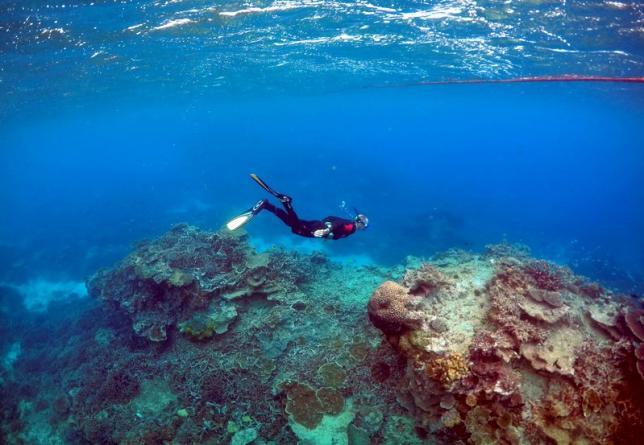A heat surge from global warming would overwhelm the natural ability of coral in Australia’s Great Barrier Reef to survive seasonal temperature changes, in much the way sun bathers would burn if they did not build their tan slowly.
A study released on Thursday examined 27 years of temperature data along the world’s biggest reef. It found that corals were able to cope with gains in water temperatures when the heat built up step-by-step, rather than abruptly.
In three-quarters of 372 cases studied along the reef, water temperatures gained and then dipped for about 10 days before rising to a peak high enough to kill corals, the study found. That 10-day respite apparently let the corals build up resistance and survive warm shocks.
But corals suffered far more damage in the quarter of cases when temperatures rose sharply, to above local temperature thresholds for damage along the 1,600 mile (2,575 km) reef, researchers wrote in the journal Science.
The safer pattern was like a human sun-worshipper lying in the sun for short periods to build a tan and avoid sunburn, said co-author Scott Heron, of the U.S. National Oceanic and Atmospheric Administration.
Global warming would eliminate the natural resistance to heat shocks, the study said, because direct rises to harmful temperatures would become more frequent, they wrote.
“Near-future increases in local temperature of as little as 0.5 degree Celsius (0.9 Fahrenheit) result in this protective mechanism being lost, which may increase the rate of degradation of the Great Barrier Reef,” they wrote.
Corals, tiny animals with stony skeletons, suffer bleaching when temperatures rise because the colorful algae that live with them and provide food die off. Reefs can sometimes recover from short-term bleachings but die if they persist.
Worldwide, last year was the warmest since records began in the 19th century, boosted by man-made activities and an El Nino event in the Pacific.
A U.N. report in 2014 said there were already early warning signs that warm water corals and the Arctic, where ice is melting, were already experiencing irreversible changes.
Lead author Tracy Ainsworth, of the Australian Research Council Centre of Excellence for Coral Reef Studies at James Cook University, said it was unclear if the same heat resistance applied to other reefs from Indonesia to Belize.
The study suggested more efforts to reduce other threats to the reef, such as industrial pollution.
Source: REUTERS











